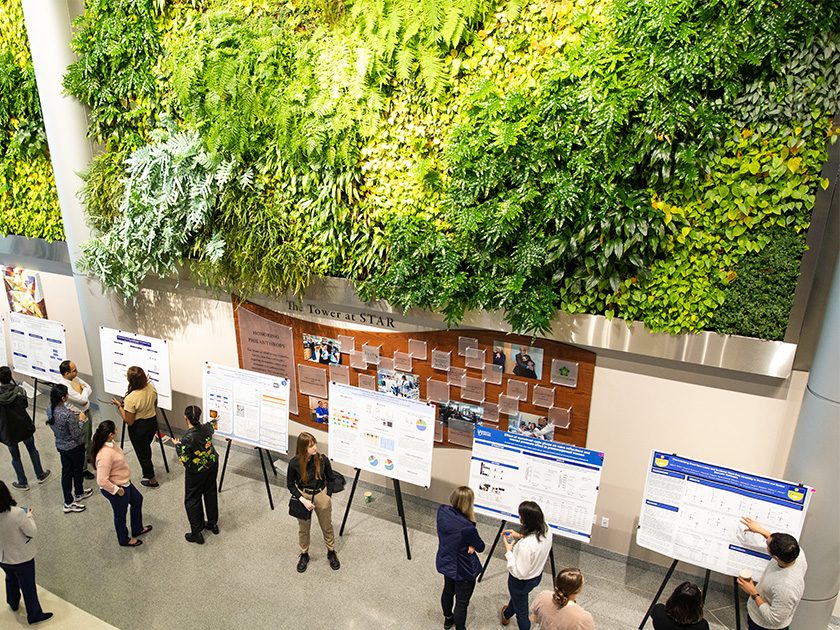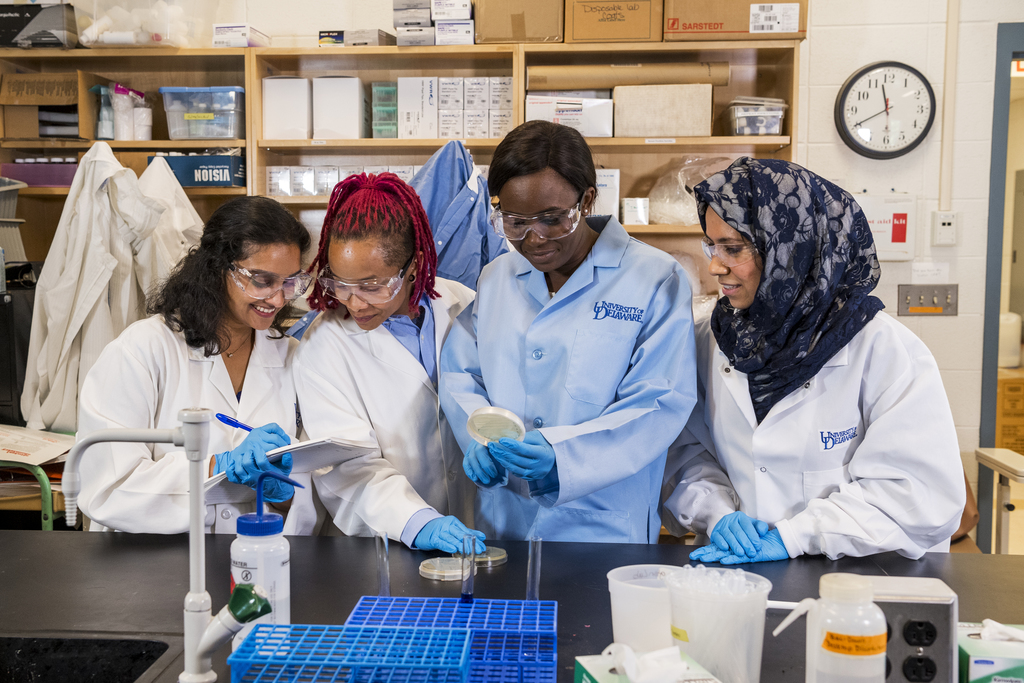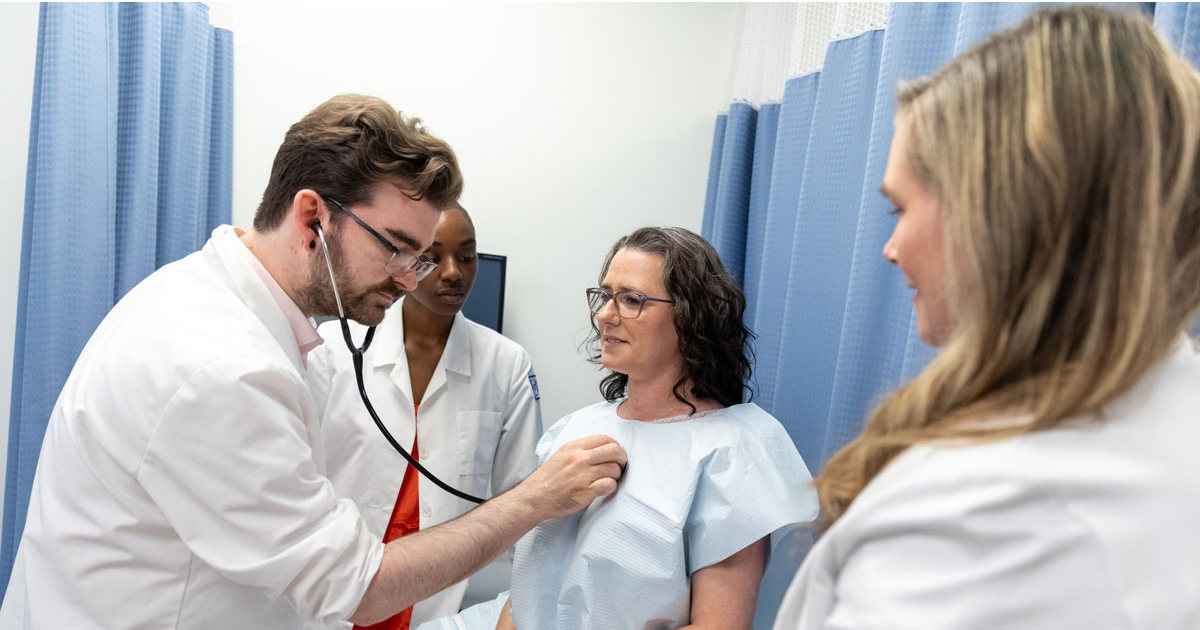

Research That Drives Results
Research in the College of Health Sciences focuses on nearly every aspect of patient care, including prevention, rehabilitation, outcomes and health monitoring. With more than 120 faculty members across six departments as well as other programs, Health Sciences fosters collaboration on research programs that address cardiovascular health, neurological diseases, aging, symptom science and more. Collaboration is not limited to the College of Health Sciences – we work across the University and with external partners on research endeavors that are funded by multiple agencies and organizations, including the National Institutes of Health.
Our research labs also provide an opportunity for students to learn firsthand how research influences care. As we seek ways to develop the next generation of healthcare leaders, we also find more innovative ways to teach students and prepare them for their highly skilled careers. Our goal is to contribute to a healthy Delaware and develop best practices that advance healthcare across the nation and across the globe.
Research Resources
From funding opportunities and grant review help, to biostatistical and facilities help.


LABS & PROGRAMS
Dedicated to conducting first-rate research that spans across a variety of research topics, our interdisciplinary labs engage faculty and students from across the university. There is unique research going on in each of our departments.
STAY CONNECTED
CHS News in Research
-

UD’s online master’s in nursing program ranked No. 35 nationally
January 27, 2026 | Written by UDaily StaffU.S. News & World Report names the University of Delaware’s online master’s programs among the best in the nation, with the online nursing master’s ranked No. 35. -
Working through pain
January 20, 2026 | Written by Amy CherryNew research by Daniel White, associate professor of physical therapy, highlights the toll of arthritis on the workforce — and the path forward. -
Department of Physical Therapy welcomes new faculty
January 05, 2026 | Written by Amy CherryThe Department of Physical Therapy welcomes new faculty member Jonathan Wood as an assistant professor for the spring 2026 semester.
